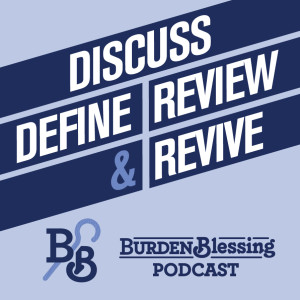
This week, Pastor Nathanael Mayhew digs into the unfamiliar word "sheol" and its meaning. This word is a Hebrew word that isn't found in all English translations. It is used often in the Psalms, and has the basic meaning of "death" or "grave", although it is also translated "hell" a few times. It is a reminder that death is the just judgment we deserve because of sin and God told Adam in the Garden of Eden and as Paul reiterates when he says: "The wages of sin is death." Death is a certainty in life for all people, both believers and unbelievers, because of our sin. Sheol is used to describe sorrow (Genesis 42:38), mourning (Genesis 37:35), shortening of years (Isaiah 38:10), and loss of knowledge and wisdom (Ecclesiastes 9:10), even for the one who believes in Christ. Without the message of Christ's work for us in His substitutianary death and resurrection, death is an extreme terror. But the Old Testament also proclaims the message of the Gospel to believers through victory over Sheol. “But God will redeem my soul from the power of Sheol (the grave), For He shall receive me. Selah” (Psalm 49:15). It also foretells the Savior's resurrection from the dead: “For You will not leave my soul in Sheol, Nor will You allow Your Holy One to see corruption” (Psalm 16:10).
Surely, God has not left us to die, but He has redeemed us from the power of Sheol through the death of His Son Jesus, and by His resurrection from the dead, He has assured us that we too will be brought from death to life! What an important reminder, as we look to Easter during this Lenten season. Even so, come, Lord Jesus!
More Episodes
 2019-06-14
2019-06-14
 98
98
 2019-06-10
2019-06-10
 62
62
 2019-06-07
2019-06-07
 78
78
 2019-06-03
2019-06-03
 72
72
 2019-05-31
2019-05-31
 80
80
 2019-05-27
2019-05-27
 63
63
 2019-05-24
2019-05-24
 418
418
 2019-05-21
2019-05-21
 65
65
 2019-05-17
2019-05-17
 87
87
 2019-05-10
2019-05-10
 101
101
 2019-05-09
2019-05-09
 75
75
 2019-04-30
2019-04-30
 85
85
 2019-04-26
2019-04-26
 81
81
 2019-04-23
2019-04-23
 68
68
 2019-04-18
2019-04-18
 72
72
 2019-04-12
2019-04-12
 81
81
 2019-04-11
2019-04-11
 62
62
 2019-04-05
2019-04-05
 93
93
 2019-04-01
2019-04-01
 63
63
 2019-03-29
2019-03-29
 104
104
Create your
podcast in
minutes
- Full-featured podcast site
- Unlimited storage and bandwidth
- Comprehensive podcast stats
- Distribute to Apple Podcasts, Spotify, and more
- Make money with your podcast
It is Free
- Privacy Policy
- Cookie Policy
- Terms of Use
- Consent Preferences
- Copyright © 2015-2024 Podbean.com






